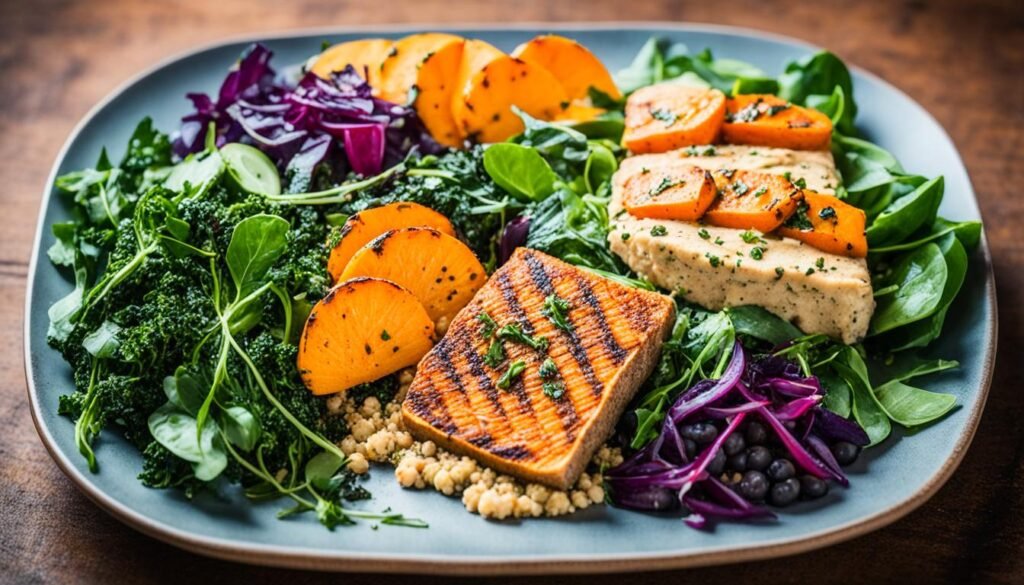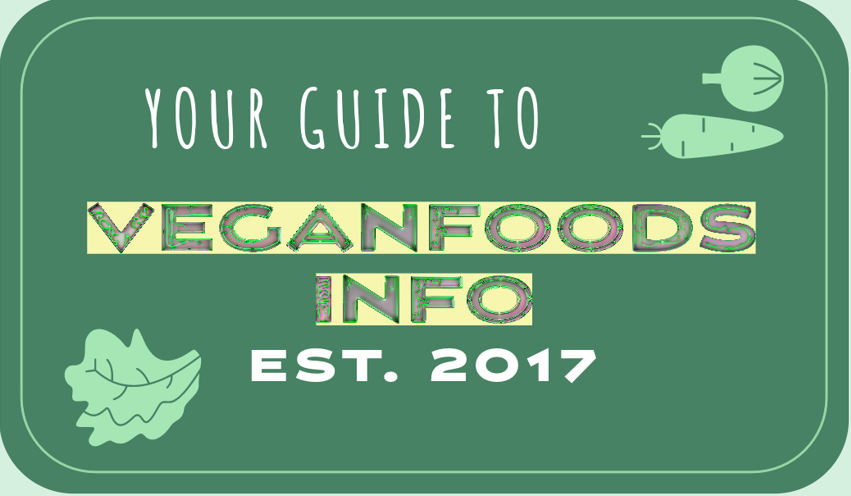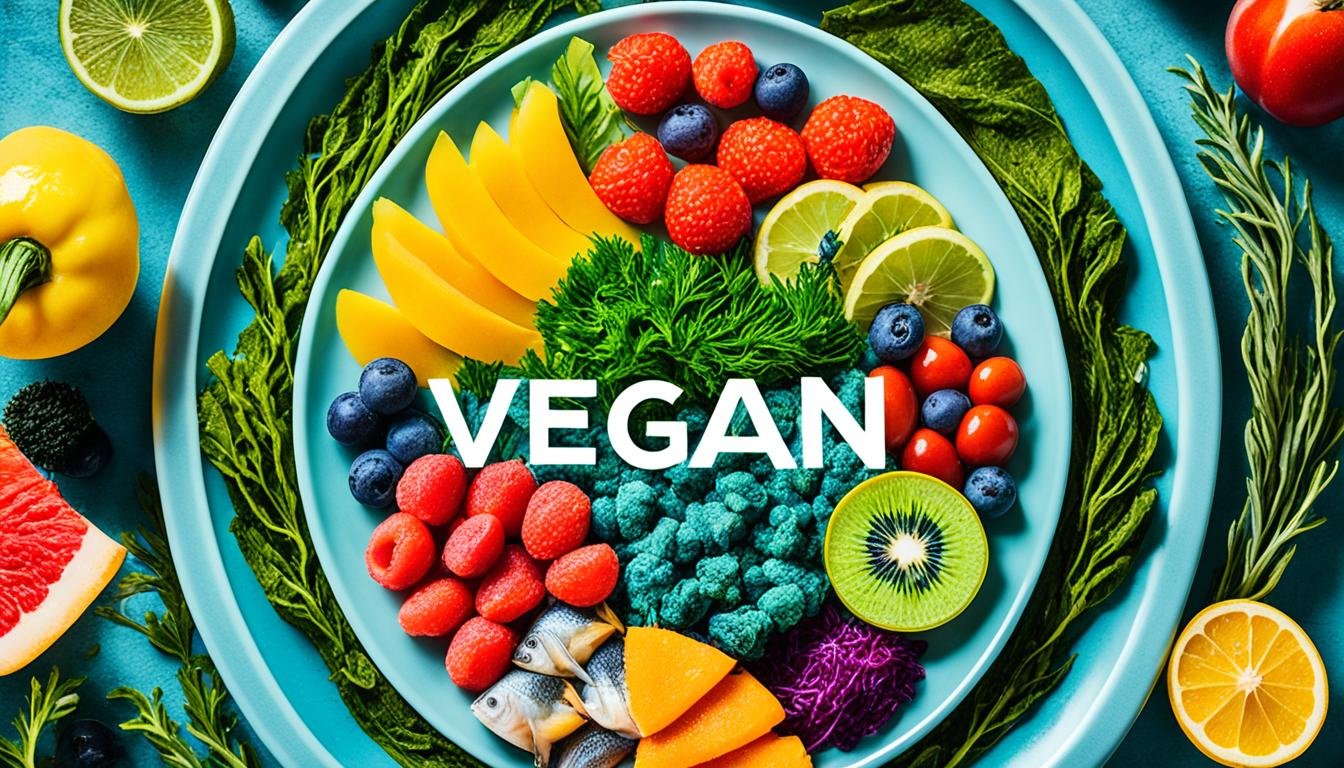Are you curious about the dietary choices of vegans? One question that often comes up is whether vegans include fish in their diet. In this article, we will explore the topic in-depth and provide you with valuable insights into the vegan diet and its relationship with fish consumption.
Veganism is a plant-based lifestyle that emphasizes the exclusion of animal products, including meat, dairy, and eggs, from one’s diet. But what about fish? Is it considered a part of the vegan diet?
The answer is clear: true vegans do not eat fish. Veganism aims to protect animal rights, promote environmental sustainability, and improve personal health. While fish are indeed animals, they are often overlooked when discussing vegan principles.
By adhering to a vegan diet, individuals seek to minimize harm and exploitation of animals, both land and sea creatures alike. The ethical considerations surrounding fish consumption in veganism are rooted in the belief that all sentient beings deserve respect and should not be used as a means for human consumption.
Despite the exclusion of fish from the vegan diet, there are numerous delicious and nutritious alternatives available. From plant-based seafood substitutes to creative plant-based recipes, vegans can enjoy a diverse and satisfying range of fish-free options.
Furthermore, following a fish-free vegan lifestyle can offer a multitude of health benefits. While fish are often praised for their omega-3 fatty acids and other nutrients, these can be obtained through plant-based sources such as chia seeds, flaxseeds, and walnuts.
In conclusion, the question of whether vegans eat fish can be definitively answered: no, they do not. Veganism is fundamentally centered around the exclusion of all animal products, including fish. By making conscientious dietary choices, vegans contribute to a more ethical and sustainable world while enjoying a nourishing plant-based lifestyle.
Understanding Veganism: A Plant-Based Lifestyle
In today’s world, more and more people are adopting a plant-based diet, seeking a healthier and more sustainable way of living. Veganism, in particular, has gained significant popularity, emphasizing the exclusion of all animal products from one’s diet and lifestyle. However, when it comes to fish consumption, there seems to be some confusion about whether fish is considered part of a vegan diet.
Veganism, at its core, revolves around the principle of avoiding any form of animal exploitation, including the consumption of meat, dairy, eggs, and other animal products. While fish are not technically classified as “meat” in the traditional sense, they are still animals. Therefore, the general consensus among vegans is that fish, along with other seafood, is excluded from their plant-based diet.
There are several reasons why fish is not considered suitable for a vegan diet. Firstly, the fishing industry is often associated with significant environmental damage, including overfishing, habitat destruction, and bycatch. As advocates for sustainability, vegans choose to avoid contributing to these harmful practices.
Furthermore, the treatment of fish in the fishing industry is a cause for concern. Commercial fishing involves methods such as trawling and longlining, which can cause immense suffering and indiscriminately capture various marine species, including endangered ones. By abstaining from fish consumption, vegans aim to promote animal welfare and minimize cruelty.
While some individuals who follow a plant-based lifestyle may include fish as part of their dietary choices, they are not considered strict vegans. Instead, they may identify as pescatarians, a term used to describe those who consume fish but avoid other forms of meat. However, it is essential to note that pescatarians and vegans have different ethical motivations and values.
As a vegan, by adopting a plant-based diet, you can derive all necessary nutrients without resorting to fish consumption. Various plant-based alternatives can provide ample protein, omega-3 fatty acids, and other essential nutrients typically associated with fish. Incorporating foods such as chia seeds, flaxseeds, walnuts, and algae-based supplements can ensure a well-rounded and nutritionally complete vegan diet.
To summarize, veganism is a plant-based lifestyle that excludes the consumption of all animal products, which includes fish and seafood. While some individuals may have personal choices that deviate from this definition, true vegans prioritize sustainability, animal welfare, and ethical principles by abstaining from fish consumption. By adopting a well-planned plant-based diet, vegans can still experience a healthy and fulfilling lifestyle, without compromising their values.
Exploring the Ethics of Veganism and Fish
In the realm of veganism, ethical considerations play a crucial role in determining dietary choices. When it comes to fish consumption, vegans adhere to a strict plant-based diet and abstain from consuming animal products, including fish. This stance is rooted in the principles of ethical veganism, which prioritize the well-being of animals and the environment.
Veganism and vegetarianism are often confused, but it’s important to differentiate between the two. While both lifestyles abstain from consuming meat, vegetarianism encompasses various practices. Some vegetarians choose to include fish in their diet and are referred to as pescatarians. On the other hand, ethical vegans avoid all forms of animal exploitation, including fish, in their pursuit of a compassionate and sustainable lifestyle.
“Ethical veganism is an extension of compassion and empathy towards all living beings. By refraining from consuming fish, ethical vegans aim to reduce harm and promote positive environmental and animal welfare impacts.”
Choosing to be pescatarian involves a more relaxed approach to dietary choices, allowing for fish consumption alongside a plant-based diet. However, from an ethical standpoint, the fishing industry poses numerous concerns. Overfishing, bycatch (the unintentional capture of non-target species), and destructive fishing methods have detrimental effects on marine ecosystems, threatening marine life populations and biodiversity.
By committing to a vegan lifestyle that excludes fish, individuals contribute to the preservation of aquatic habitats and the well-being of marine species. Furthermore, ethical vegans seek alternative sources of essential nutrients commonly associated with fish consumption, such as omega-3 fatty acids and protein.
To highlight the differences between pescatarians and ethical vegans in their approach towards fish consumption, let’s explore a comparative table:
| Pescatarian | Ethical Vegan | |
|---|---|---|
| Dietary Choice | Includes fish alongside a plant-based diet | Excludes all forms of animal exploitation, including fish |
| Ethical Considerations | Maintains a more flexible stance on animal welfare | Prioritizes compassion, reducing harm to animals and the environment |
| Environmental Impact | Contributes to fishing practices that can be unsustainable and harmful | Promotes a sustainable lifestyle with minimal environmental impact |
The table discerns the contrasting perspectives of pescatarians and ethical vegans when it comes to fish consumption, highlighting the values and principles that guide their dietary choices.
Fish-Free Vegan Options and Alternatives
For vegans who choose to completely avoid fish, there are plenty of delicious options and alternatives available that can satisfy their cravings and provide the nutrients they need. These fish-free alternatives are not only more aligned with a vegan lifestyle, but they also offer a variety of flavors and textures that can enhance any plant-based diet.
Plant-Based Seafood Substitutes
Plant-based seafood substitutes are becoming increasingly popular among vegans and those looking to reduce their consumption of animal products. These alternatives are made from various plant-based ingredients and are designed to mimic the taste and texture of fish. Here are some plant-based seafood substitutes to consider:
- Vegan fish fillets made from tofu or tempeh
- Plant-based shrimp made from konjac or tapioca starch
- Vegetable-based crab cakes made with artichokes or hearts of palm
- Fishless tuna made from soy or chickpeas
These plant-based seafood substitutes offer a guilt-free way to enjoy your favorite seafood dishes without harming marine life.
Creating Fish-Like Flavors with Plant-Based Ingredients
Aside from plant-based seafood substitutes, there are also numerous plant-based ingredients that can help recreate the flavors typically associated with fish. By combining the right ingredients and seasonings, you can create delicious fish-like flavors in your vegan dishes. Some options to consider include:
- Nori seaweed: A popular ingredient for adding a briny, sea-like flavor to dishes
- Vegan fish sauce: Made from fermented soybeans and other seasonings, this sauce adds a savory umami flavor that is reminiscent of fish
- Kelp powder: Rich in minerals and iodine, kelp powder can provide a subtle fishy flavor to your recipes
- Black salt (kala namak): This sulfurous salt adds an eggy flavor to dishes and can mimic the taste of seafood
Experimenting with these plant-based ingredients can help you create fish-free dishes that are full of flavor and satisfy your cravings.
A Variety of Vegan Recipes
To make your vegan dishes more exciting and diverse, there are countless fish-free recipes available that can take your culinary skills to the next level. Whether you’re craving sushi, fish tacos, or a creamy seafood pasta, there are vegan versions of these dishes that utilize plant-based ingredients to create the same mouthwatering flavors. A quick search online or in a vegan cookbook will provide you with a plethora of fish-free recipe ideas to explore.
With the abundance of fish-free vegan options and alternatives, there’s no need to miss out on the flavors and textures typically associated with fish. By embracing plant-based substitutes, exploring unique ingredients, and trying new recipes, you can enjoy a satisfying and fulfilling vegan lifestyle, free from fish.

Health Benefits of a Fish-Free Vegan Lifestyle
A fish-free vegan lifestyle offers numerous health benefits, proving that a well-rounded plant-based diet can provide all the necessary nutrients found in fish. By exploring alternative plant-based sources, vegans can maintain optimal health while adhering to their ethical choices.
Key Nutrients Derived from Fish
Before we delve into plant-based alternatives, let’s examine the key nutrients commonly associated with fish consumption:
| Nutrient | Benefits |
|---|---|
| Omega-3 Fatty Acids | Promote heart health, reduce inflammation, and support brain function. |
| Vitamin D | Essential for bone health, immune function, and overall well-being. |
| Protein | Builds and repairs tissues, helps maintain muscle mass, and aids in enzyme production. |
| Iron | Crucial for oxygen transportation, energy production, and immune system support. |
While fish is a common source of these nutrients, a fish-free vegan diet can provide equivalent or superior alternatives. Let’s explore some plant-based options:
Plant-Based Alternatives and Substitutes
- Omega-3 Fatty Acids: Flaxseeds, chia seeds, walnuts, and hemp seeds are rich in alpha-linolenic acid (ALA), an essential omega-3 fatty acid that can be converted into EPA and DHA within the body.
- Vitamin D: Sun exposure, fortified plant-based milk, and supplements are excellent sources of vitamin D. Additionally, mushrooms exposed to sunlight can provide a natural plant-based source of this essential nutrient.
- Protein: Legumes, tofu, tempeh, seitan, quinoa, and soy products offer complete protein profiles that can easily replace fish in a vegan diet.
- Iron: Leafy greens, lentils, chickpeas, fortified cereals, and seeds such as pumpkin and sesame are high in iron. Consuming these foods with a source of vitamin C enhances iron absorption.
Incorporating these plant-based alternatives into a vegan diet ensures not only the presence of essential nutrients but also the potential for additional health benefits. A well-planned plant-based diet can provide optimal nutrition, supporting overall well-being and reducing the risk of certain chronic diseases.
Embracing a fish-free vegan lifestyle promotes sustainable food choices while benefiting both personal health and the environment. By exploring the plethora of plant-based options available today, individuals can easily create nutritious and satisfying meals devoid of fish consumption.
Conclusion: The Verdict on Fish in a Vegan Diet
After exploring the question of whether vegans eat fish, it is clear that fish consumption is not considered part of a vegan diet. Vegans strictly adhere to a plant-based lifestyle that excludes all animal products, including fish.
Veganism is grounded in the ethical belief that all animals should be treated with respect and not be exploited for human consumption. This includes avoiding the consumption of fish, as it involves harming and killing aquatic creatures.
While some individuals may follow a more flexible approach, known as pescatarianism, where they include fish in their diet while avoiding other animal products, this does not align with the principles of veganism.
For those looking to adopt a vegan lifestyle, there are numerous fish-free options and alternatives available. Plant-based ingredients can be used to recreate the flavors and textures of fish, allowing vegans to still enjoy a diverse and fulfilling diet without the need for fish consumption.
In conclusion, vegans do not eat fish as it contradicts the core principles of a plant-based lifestyle. By embracing a vegan diet, individuals can make compassionate choices that promote the well-being of animals while still maintaining a nutritious and satisfying diet.

